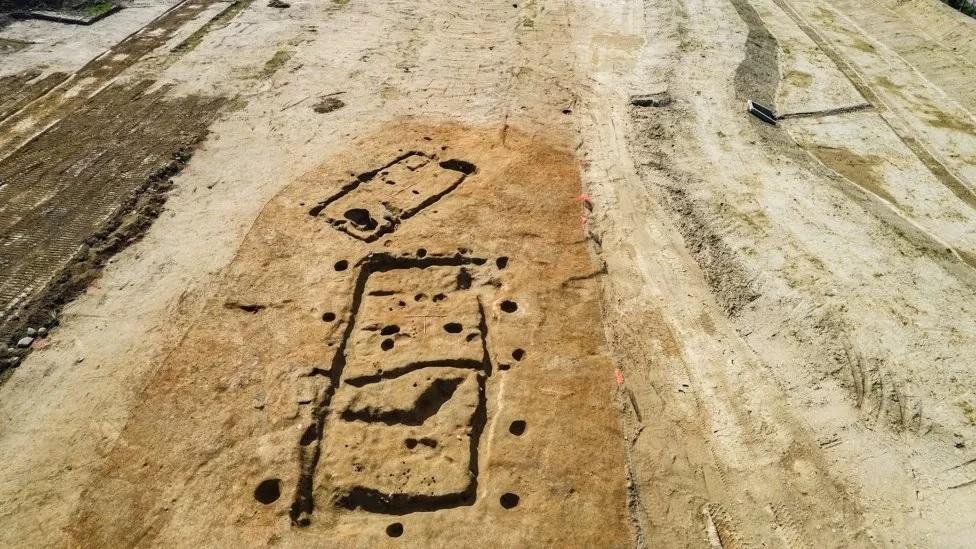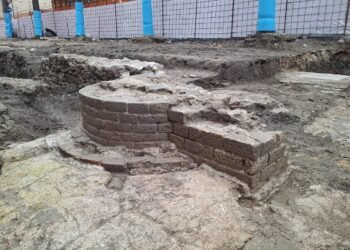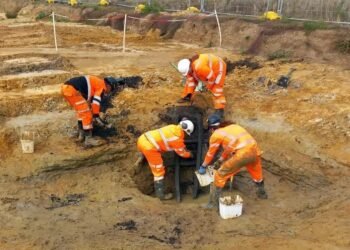A recent discovery of a Neolithic settlement on the shores of Lough Foyle in Northern Ireland is providing valuable insights into the lives of people who lived there 5,000 years ago, as reported by BBC News.

Archaeologists conducting a dig on Clooney Road in Londonderry uncovered evidence of two large rectangular houses dating back to approximately 3,800 BCE.
Additionally, they found tools, pottery, and cooking utensils from the Neolithic period.
Experts note that such houses, similar to those found in Derry, are rarely unearthed. Katy McMonagle, the archaeologist leading the Clooney Road dig, explains that rectangular homes from this period are seldom found outside of Scotland and Ireland.
The area around Lough Foyle has a significant number of early Neolithic settlements, indicating a high density of Neolithic populations living in the region.
The unearthed homes, estimated to be 5,000 years old, were larger than the average contemporary house. They featured dividing walls, foundations that may have supported oak planks, and structures covered by a large peaked roof.
Circular buildings were more common during the Neolithic period, which spanned from 4,000 to 2,000 BCE.
This period marked a shift in human society as people transitioned from nomadic hunter-gatherers to a settled way of life, primarily focused on agriculture.
The Derry settlement and its construction reflect this transition to a more settled lifestyle. McMonagle explains that the location of the settlement, with the resource-rich Lough Foyle nearby, along with the substantial nature of the structures, indicate a beautifully wooded area during the Neolithic period.
The tools and utensils discovered at the site further demonstrate the advancements of the Neolithic period in Ireland.
This archaeological discovery provides significant insights into the daily lives and housing arrangements of Neolithic communities in the Lough Foyle region.























